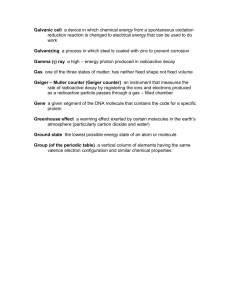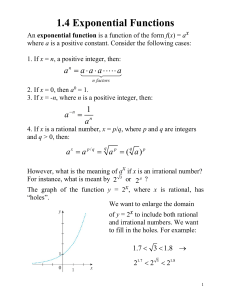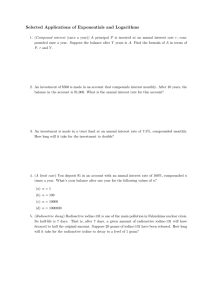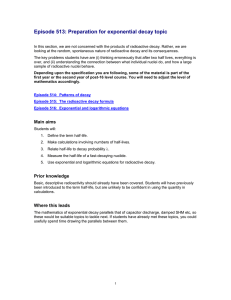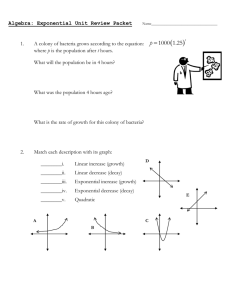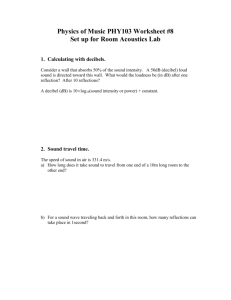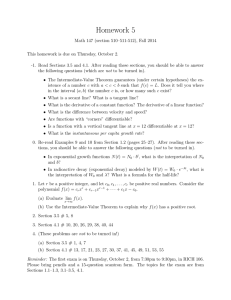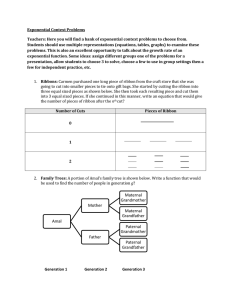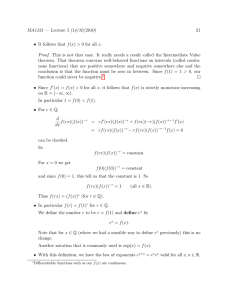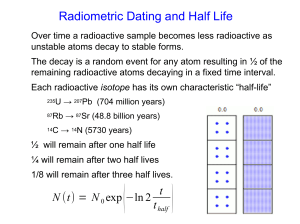Section 4.6: Derivatives of Exponential Functions If f (x) = e
advertisement
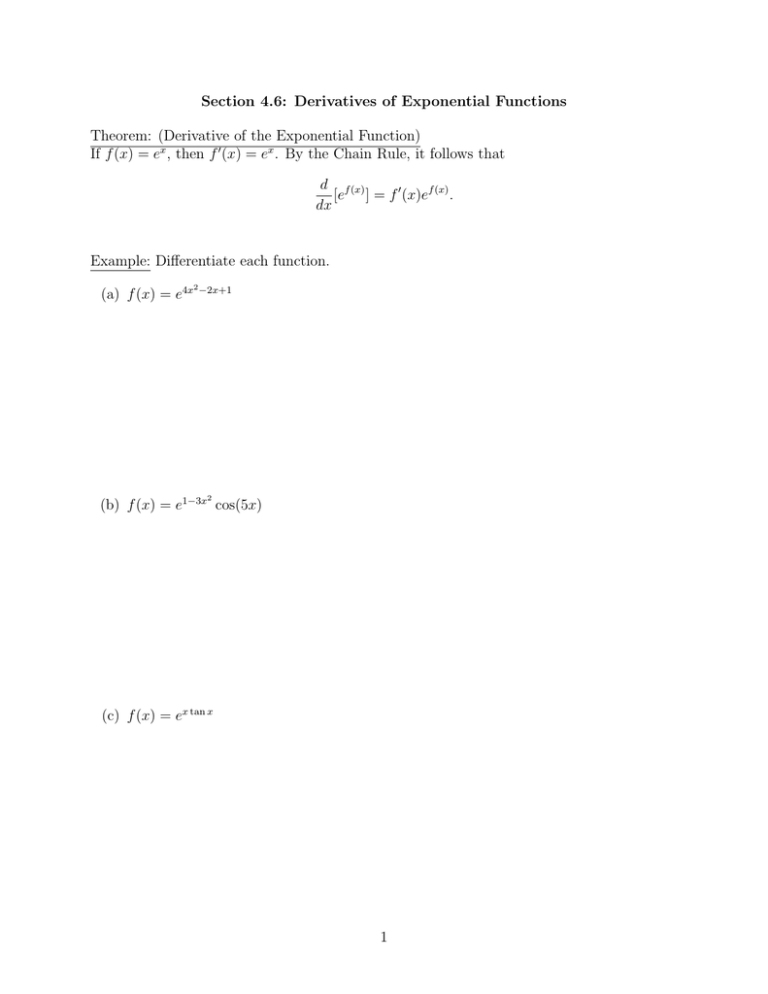
Section 4.6: Derivatives of Exponential Functions Theorem: (Derivative of the Exponential Function) If f (x) = ex , then f 0 (x) = ex . By the Chain Rule, it follows that d f (x) [e ] = f 0 (x)ef (x) . dx Example: Differentiate each function. (a) f (x) = e4x 2 −2x+1 2 (b) f (x) = e1−3x cos(5x) (c) f (x) = ex tan x 1 (d) f (x) = 1 + x2 2 + e−x (e) f (x) = sin 1 − e2x 1 + e2x 2 Example: Show that if f (x) = ax , then f 0 (x) = (ln a)ax . Theorem: (Derivative of a General Exponential Function) d x (a ) = (ln a)ax dx By the Chain Rule, it follows that d f (x) [a ] = (ln a)af (x) f 0 (x). dx Example: Differentiate each function. (a) f (x) = 2x 3 −1 √ (b) f (x) = 4 1−2x3 3 Example: (Bacterial Growth) Suppose that the population size of a bacterial colony at time t ≥ 0 is given by N (t) = N0 ert , where N0 is the initial population size and r > 0 is the growth rate. Show that dN = rN. dt What is the per capita growth rate? Example: (Radioactive Decay) Suppose that y(t) denotes the mass of a radioactive substance left after t days. If the decay rate of the material is 0.3/day, find a differential equation for the decay function y(t). 4 Example: (Radioactive Decay) Suppose that y(t) denotes the mass of a radioactive substance left after t days. Assume that y(0) = 15 and dy = −3y. dt (a) Find an expression for the mass left at time t. (b) How much material is left after t = 3 days? (c) What is the half-life of this material? 5 Example: (Von Bertalanffy Growth Model) The growth of fish can be described by the von Bertalanffy growth function L(x) = L∞ − (L∞ − L0 )e−kx , where x denotes the age of the fish and k, L∞ , and L0 are positive constants. (a) Evaluate L(0) and interpret the biological meaning of L0 . (b) Evaluate lim L(x) and interpret the biological meaning of L∞ . x→∞ (c) Differentiate L(x) and show that the growth rate satisfies the differential equation dL = k(L∞ − L). dx What does this proportionality say about how the growth rate changes with age? 6
